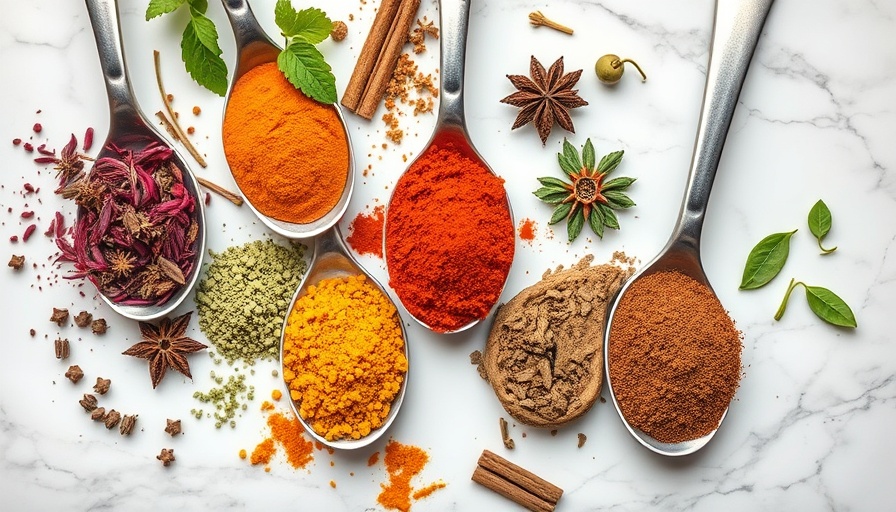
The Importance of Herbs and Spices for Brain Health
As concerns around brain health deepen, especially in the context of conditions like dementia and Alzheimer’s, many are exploring natural methods to enhance cognitive function. A flourishing field of research suggests that specific herbs and spices can play a vital role in supporting brain health, making the concept of urban gardening highly relevant for those looking to embrace sustainability while caring for their cognitive well-being.
Understanding the Link Between Lifestyle and Brain Health
Genetics certainly plays a model in the risk of developing memory-related diseases, but lifestyle choices are equally critical. Engaging in a balanced diet rich in nutrient-dense foods, minimizing stress, and incorporating physical activity can all help in maintaining cognitive functions. Integrating herbs and spices into our daily meals is an effortless way to supplement our diets with brain-healthy benefits.
Top Herbs and Spices for Mental Wellness
Out of the myriad options available, several herbs and spices stand out as particularly effective in supporting cognitive function:
- Ginseng: A powerhouse among adaptogens, Ginseng is packed with ginsenosides that help lower beta-amyloid levels in the brain, directly contributing to improved memory and cognitive functions. Though it carries potential side effects, when used cautiously, it serves as an effective energy booster.
- Sage: Known for its savory flavor, sage is not just a culinary delight but also supports neurological function. Its application in meals, from soups to roasted meats, enhances both flavor and health benefits.
- Rosemary: With aromas that stimulate the brain, rosemary has been shown in studies to enhance memory retention. This versatile herb can be grown easily in pots, making it perfect for urban gardens.
- Tumeric: With its key ingredient curcumin, turmeric can help optimize brain function by fighting inflammation. Adding this spice into a daily routine can support overall cognitive health.
- Basil: Often overlooked, basil is not only a flavor enhancer; it contains antioxidants that support overall brain health and may combat cognitive decline.
The Gardening Connection
Growing these herbs at home is a fulfilling endeavor that can also enhance mental health. Gardening is known to have therapeutic effects, which can be especially beneficial for those dealing with stress or anxiety. Urban farming allows individuals to cultivate their own ingredients organically, fostering a connection to food sources, while enhancing knowledge around sustainable practices.
Challenges and Considerations
While herbs can be beneficial, it's vital for readers to be aware of any conditions or medications that may interact negatively with these natural remedies. Ginseng, for instance, may lead to side effects like increased heart rate, which should be monitored. Consultation with a healthcare provider is always recommended before making significant changes to one’s diet for medicinal purposes.
The Future of Urban Agriculture
The rise of urban agriculture signifies a growing interest in sustainable living and community well-being. With the global population becoming increasingly concentrated in urban areas, embracing techniques like vertical farming and hydroponics can become crucial. Not only do these practices make optimal use of space, but they also empower communities to take control over their food sources, which in turn can lead to improved public health outcomes.
Conclusion: Why Grow Your Own?
Adopting urban gardening practices by growing herbs and spices doesn't just serve your culinary needs but also fortifies your well-being while supporting sustainable living. As our understanding of the connection between diet and brain health evolves, making even modest adjustments can yield remarkable benefits. Now is the time to grab those seeds, immerse yourself in the soil, and cultivate not just plants, but a healthier mind.
To encourage engagement with this journey, consider exploring community gardening initiatives or local workshops on sustainable agriculture to connect with like-minded individuals.
 Add Row
Add Row  Add
Add 




 Add Row
Add Row  Add
Add 

Write A Comment